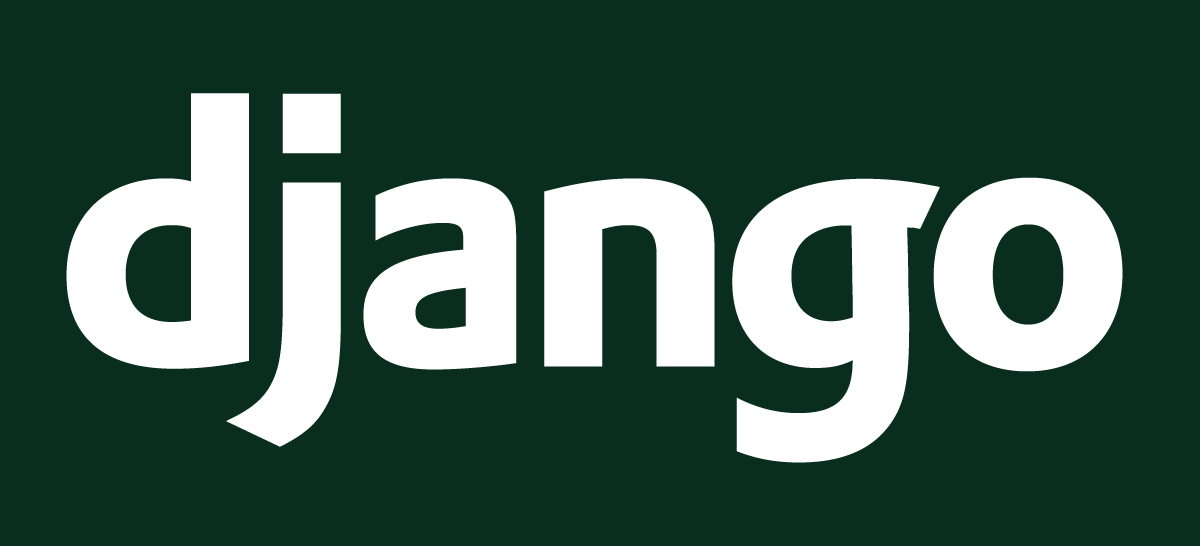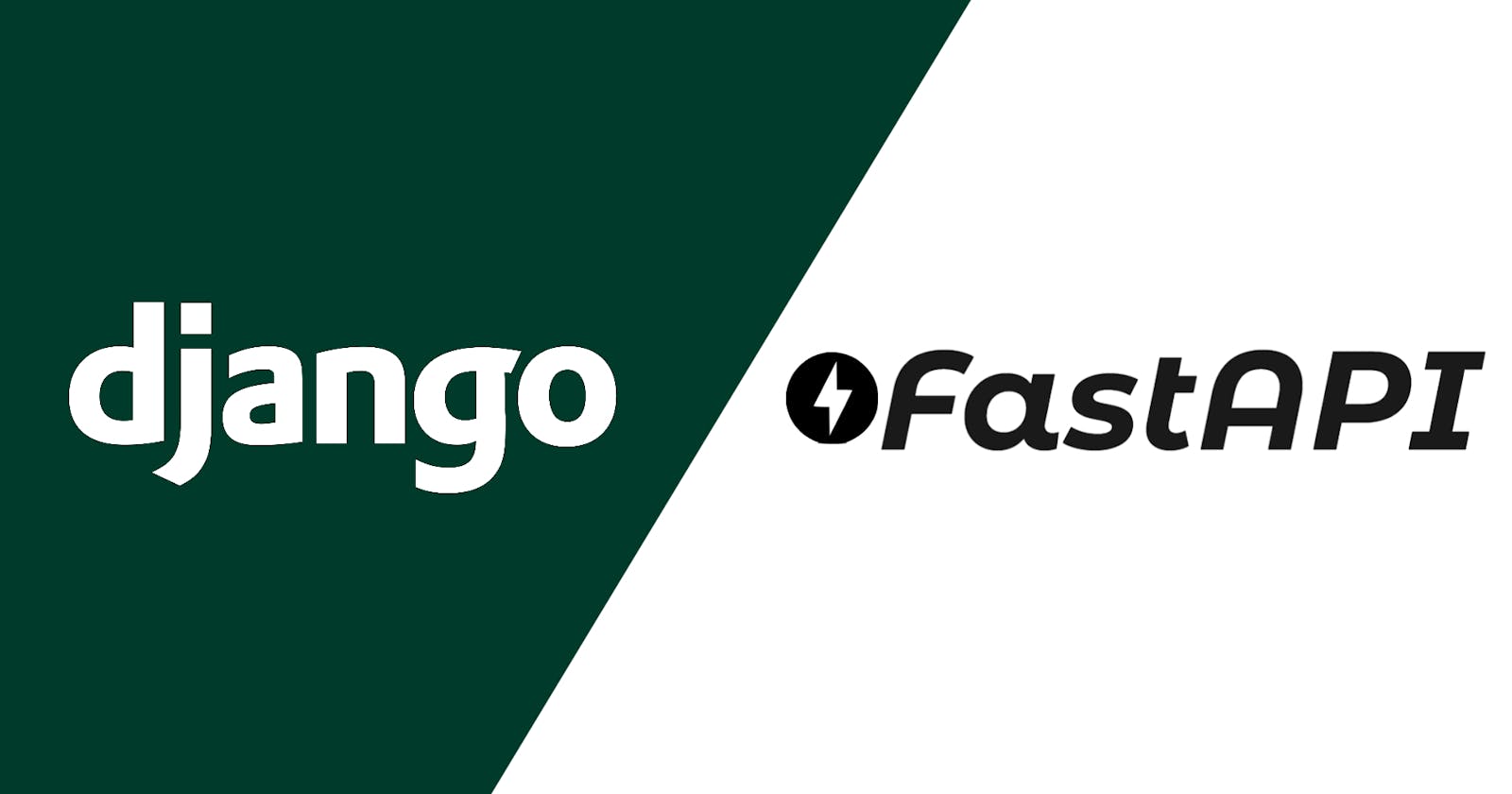Python has a powerful impact on the Web Development field and it has all become possible because of some of the brilliantly developed frameworks like Django, Flask, FastAPI, Bottle and Pynecone. Now, in this article, we will be comparing only Django and FastAPI side-by-side and I believe I have some reasons to exclude the other frameworks above.
FastAPI is more or less similar to Flask when it comes to coding. Bottle as a web framework is rarely used in modern websites/applications these days and Pynecone, on the other hand, is recently released and has a negligible amount of users around the world.
Let's talk about Django:-

Django is a python web framework that has built its hold in the tech market with its powerful features like Django-ORM support, ease-in-scalability, versatility, and multiple app support in a single project. Django is said to be a "batteries-included framework" which means that the framework has everything a developer needs to build a huge website from scratch. One thing you will hear from any Django developer as its pro is the amount of code they have to write to build a fully functional website. The pythonic code syntax helps developers to code less and build more. It also has vast community support where almost all the problems you come up with have already been solved by someone. But, as with any other framework out there, it has its cons too. As I told you before, Django comes with a lot. And sometimes, there is so much inside it that you don't need if you are building a small-scale website. This results in an excess amount of unused modules that Django gives by default and can result in unnecessary time consumption of the server where the project has been hosted.
Pros of Django:-
Speed and Scalability.
Community Support.
Default admin panel.
Batteries included.
Supports pythonic syntax.
Django ORM.
Security.
etc.
Cons of Django:-
Not recommended for small projects.
Many unused dependencies make small projects slower.
Not recommended for beginners.
Has issues in handling multiple requests at a time.
Let's talk on FastAPI:-

FastAPI is a not-so-recently released web framework used to build APIs. It is developed by Sebastián Ramírez. This framework in some years of its release became very popular mostly due to its speed. It is known to compete with NodeJS in the terms of speed and is one of the fastest Python frameworks available in the market. FastAPI also has the support of SQLAlchemy and Pydantic to build models and schemas respectively which helps developers with building databases and data validation. I have written a whole article on how to start with FastAPI so I won't be discussing the framework, so let's get into its pros and cons.
Pros of FastAPI:-
As the name suggests, it is faster than any other Python framework.
Supports asynchronous code. (This is very important)
Can develop API in a single file with very few lines of code.
Easy-to-understand documentation.
Is suitable for both small and large projects.
SQLAlchemy support makes its ORM better than Django's.
Cons of FastAPI:-
No boilerplate code. (i.e. developer will have to start from scratch without any pre-written code)
No dependency injection.
Small community support.
Conclusion
Now, without a doubt, this framework is faster than Django. Also, it provides out-of-the-box support for asynchronous code. But, speed and asynchronicity alone cannot win the market as there are other more important factors like community support and security where Django has made its impact. Also, keeping in mind that FastAPI does not provide any boilerplate code, it becomes comparatively difficult to build a large application.
In simpler words, if your need is a small website or project, you can go with FastAPI and build your project with you being the one in control. On the other hand, you can of course also build a large project with FastAPI but Django will be a better choice any day due to its large community, monolithic structure and multiple app support. Django is also a better choice when it comes to security aspects.
Hope you liked this article, do let me know in the comments if you have any query and I will answer it ASAP. Thank you!
